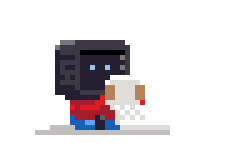Sometimes the RPM dependencies can't be installed because the DNF cache refers to old packages that have been replaced by newer builds on the RPM repositories [1]. This often happens on Fedora Rawhide because it sees a lot more churn than stable Fedoras. Currently, one has to keep restarting the tests manually by typing 'recheck' until the DNF caches eventually get updated. This is both very inefficient because it requires manual intervention; and wasteful because it can take several attempts and it doesn't just run the failing Ansible job, but all the other ones too. It will be good to force the DNF cache to be updated [2] when an Ansible job is being attempted more than once [3]. [1] https://github.com/containers/toolbox/pull/1171 https://github.com/containers/toolbox/pull/1200 [2] https://docs.ansible.com/ansible/latest/collections/ansible/builtin/dnf_module.html#parameter-update_cache [3] https://zuul-ci.org/docs/zuul/latest/job-content.html#var-zuul.attempts https://github.com/containers/toolbox/pull/1201 |
||
|---|---|---|
| .github | ||
| completion | ||
| data | ||
| doc | ||
| images | ||
| playbooks | ||
| profile.d | ||
| src | ||
| test/system | ||
| .codespellexcludefile | ||
| .gitignore | ||
| .gitmodules | ||
| .mailmap | ||
| .zuul.yaml | ||
| CODE-OF-CONDUCT.md | ||
| CONTRIBUTING.md | ||
| COPYING | ||
| gen-docs-list | ||
| GOALS.md | ||
| meson.build | ||
| meson_options.txt | ||
| meson_post_install.py | ||
| NEWS | ||
| README.md | ||
| SECURITY.md | ||
| toolbox | ||
Toolbox is a tool for Linux, which allows the use of interactive command line environments for development and troubleshooting the host operating system, without having to install software on the host. It is built on top of Podman and other standard container technologies from OCI.
Toolbox environments have seamless access to the user's home directory, the Wayland and X11 sockets, networking (including Avahi), removable devices (like USB sticks), systemd journal, SSH agent, D-Bus, ulimits, /dev and the udev database, etc..
This is particularly useful on OSTree based operating systems like Fedora CoreOS and Silverblue. The intention of these systems is to discourage installation of software on the host, and instead install software as (or in) containers — they mostly don't even have package managers like DNF or YUM. This makes it difficult to set up a development environment or troubleshoot the operating system in the usual way.
Toolbox solves this problem by providing a fully mutable container within
which one can install their favourite development and troubleshooting tools,
editors and SDKs. For example, it's possible to do yum install ansible
without affecting the base operating system.
However, this tool doesn't require using an OSTree based system. It works equally well on Fedora Workstation and Server, and that's a useful way to incrementally adopt containerization.
The toolbox environment is based on an OCI
image. On Fedora this is the fedora-toolbox image. This image is used to
create a toolbox container that offers the interactive command line
environment.
Note that Toolbox makes no promise about security beyond what's already available in the usual command line environment on the host that everybody is familiar with.
Installation & Use
See our guides on installing & getting started with Toolbox and Linux distro support.


